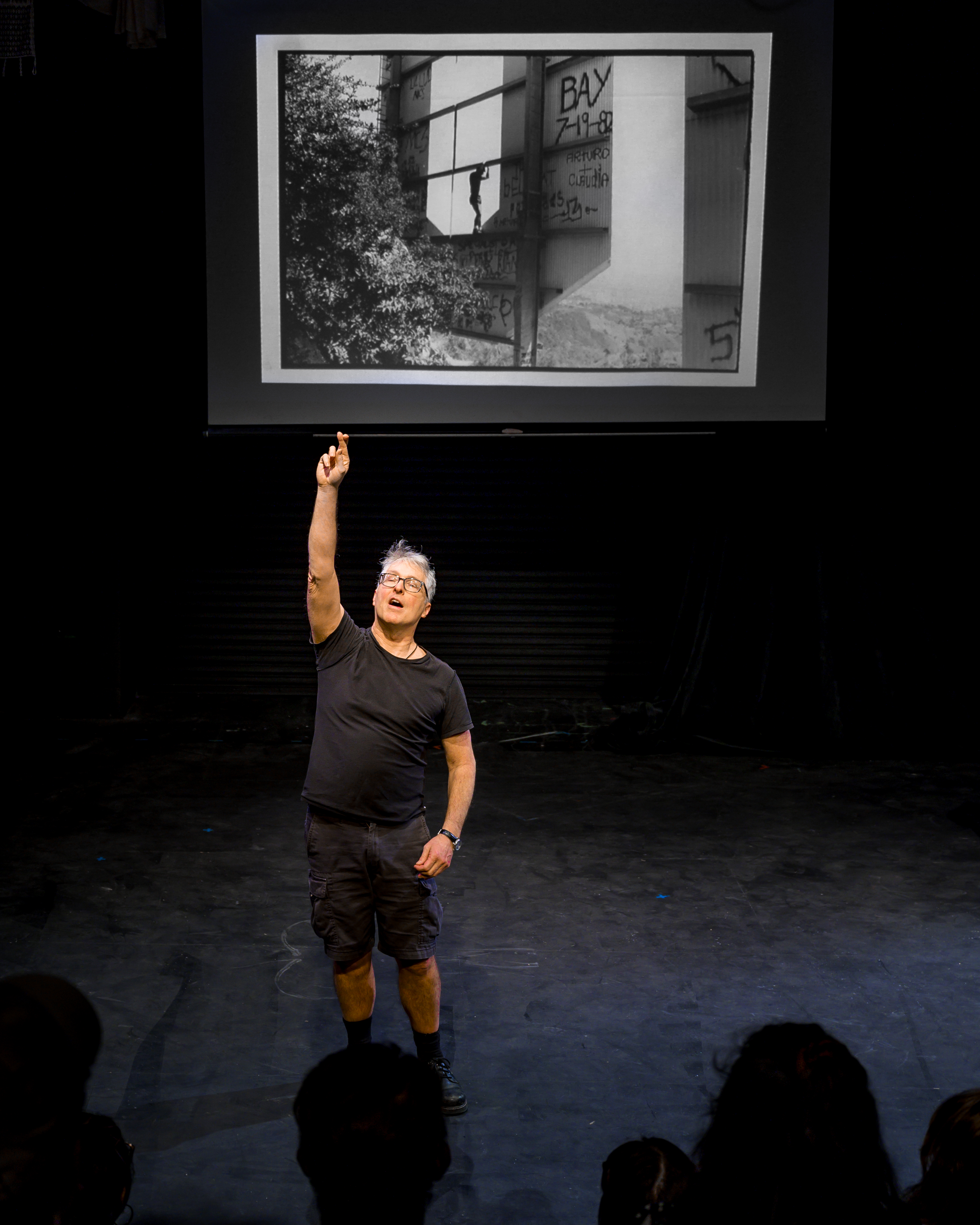Tiffany Moore
Transcript Correspondent
tpmoore@owu.edu
For many, the Hollywood sign is simply a famous Los Angeles landmark, but for a performer who appeared at Ohio Wesleyan Monday night, those o’s in the sign represent personal potential.
Tim Miller, who has taken his solo act around the world, likens those letters to Shakespeare’s notion of making the most out of theatre space, like the Globe Theatre of London built in 1599 by Shakespeare’s theater company and known as “The Wooden O.”
Shakespeare’s goal was to have his audience forget their surroundings as they immersed themselves in a play. Miller made a similar pitch, issuing a call to action for about 40 in the captivated audience at OWU’s Chappelear Drama Center to claim their potential.
In a presentation of his written works, Miller explored racism, homophobia and the fight for a better future. He also discussed his autobiography, “A body in the O” and sold signed copies at the end of his performance.
“I don’t want them to just listen to my story, I want them to be thinking of what’s a story like that, that [they’ve] felt in [their] life and if they got it then, maybe they’ll start telling it to other people or maybe that becomes a deeper knowledge of their own life,” Miller said in an interview.
A lot of Miller’s work focuses on marriage equality and the injustices that same-sex couples face in this country. Miller said his next goal is to bring more awareness to the climate crisis.
“I’m old enough that it may not affect me as much, but it’s going to affect you much more and it’ll affect someone whose four years old now more than you,” Miller said. “The idea of 100 years from now people not having this beautiful planet working, or just whole parts of the world being uninhabitable is pretty … what a horrible thing to have not done everything we could.”
Miller’s performance was filled with thought provoking moments, putting the audience on the edge of their seats as they listened to stories from the perspective of both a young and older gay male struggling to survive in a society where homophobia is ubiquitous.
OWU sophomore Aaron Eicher said, “It was cool to see and also made me think about what a performance is because it was just storytelling for an hour, but it still captivated you.”
OWU senior Ran Ye said, “I don’t have any of his experiences so he reminds me of a lot of new things … because something comes up in my mind and I haven’t thought about that before.”
Miller began performing at OWU in 2008. Most of his visits included workshops, working with about 20 students in writing an hour long piece of work over the course of one week. His latest performance was funded by the OWU Theory-to-Practice Grant program.
